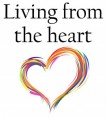Balancing freedom and commitment in your relationship.
Being emotionally mature is the ability to identify, respond, understand and manage your emotions, which can be complex, paradoxical and confusing at times. When the happiness and well being of your loved ones becomes as essential as your own.
The ability to hold complexity is the hallmark of growth and maturity, when you respond with compassion and kindness rather than reacting impulsively or blaming the other person for your feelings, complexes, problems or behaviour.
You can observe your level of emotional maturity through witnessing your thoughts, behaviours and how you respond to situations.
This ability enables you to problem solve, grow and have meaningful relationships. Without this depth sustaining significant, happy relationships can become elusive.
In times of difficulty, resorting to criticism, judgments, or personal attacks escalates the problems, it devalues the other person instead of addressing the real issue in hand to find a solution without needing to win a battle, leave or run away. When you learn to accept the imperfections of your partner, without losing love and respect, it is a sign maturity and depth of your relationship. Humility parallels maturity. The pathway to maturity is getting past your own needs and desires, to begin to meet the needs of your beloved along side yours.
The Value of relationships
Values are about what you need in order to live your life authentically, to be happy and feel good. These are based on your firmly held beliefs about what makes you valuable and also what you see as valuable in others. This may be need to be developed in you. Value is based on the importance you place on your loved ones’ presence in your life and the awareness of the impact your behaviour, words and actions has on your beloved. Limitations are usually self imposed, most battles are played out between the heart and mind. If a battle is fought with the intention of surrender you will find; true freedom. People who value their relationships will not allow the fact that they are busy to undermine their relationships. Making time for each other is an act of care. A person who values their relationship will make their partners’ presence a priority. A good relationship is one in which you can depend on someone, or vice versa including the time and energy necessary to maintain other relationships and take care of yourself.
If you find it hard to enter into emotional maturity and never get past the self absorbed, immature phase of childhood. It is perfectly possible for you to be in a relationship, but there may come a time when you do not want it to go any further, because you fear giving up your freedom so you avoid getting involved past a certain point; a point that would be strengthening for the relationship. A point at which you have the wisdom to appreciate and know the value of your relationship.
You might blame relationship problems on a ‘lack of love’ or the other person not ‘being enough’.
In truth it is the challenge of being close and loving in a relationship that uncovers this difficulty.
A close relationship is a powerful light, and like any strong light it casts a large shadow. When you stand in the light of a close relationship, you will encounter the shadow.
‘There is a psychological law that says when you do not own and consciously recognise inner conflict, the situation will be played out through external circumstances unconsciously.’ Jung
Fear of Commitment
In simple terms, fear of commitment, is a reluctance to proceed, hesitation and the like do not preserve freedom. They delay it. Freedom comes from inclusion. From oneness, which cannot be realised unless two become a team and each person remembers the simple phrase, “Me too.”
True empowerment comes from embracing your fears and hurts. True freedom is experienced in relationships when you remember that you are not separate from your beloved or the world.
It is possible find the right balance of personal freedom and commitment. When two people are together in a way that respects individual space and at the same time expresses unambiguous commitment, then both people can relax and be who they are.
What does balance look like?
A balance between autonomy and commitment, between individual space and shared connection. If the relationship is too close, both people feel suffocated. If it is too distant; too much space, there is no sense of commitment, no awareness of common ground, then there is no authentic heart connection.
A solution is to develop awareness of your emotional patterns, particularly how you handle your desires and needs.
- Am I aware of how I react when I am feeling jealous, trapped or neglected?
- How predictable am I when I become disappointed?
- Do I become angry or clingy or begin to plot emotional retaliation?
- What helps me stay open?
- What ignites my sense of generosity or forgiveness?
Trust
Communicating your truth, being open, and expressing your true self are all things that a healthy relationship needs. Trust is the foundation upon which good relationships are built, mistrust destroys it. If trust, acceptance, positivity, attentiveness and prioritising is inconsistent, it is a potential sign of that something is misaligned.
If you can not see how your emotional habits are manifesting from moment to moment, there is no hope for transforming them or developing a healthy balanced, emotional life.
Developing an honest relationship with your emotions is transformative. Bringing awareness to a situation before it carries you away on a rollercoaster ride can save you from emotional distress.
Developing a habit of self awareness can help you keep your emotional life in balance.
Finding balance in your relationships is not only a better way to live; it can be a path to a more loving, enlightened and joyful existence.
Desire’s most enlightened and irresistible form is joy.
Freedom is the open space in which love can prevail. Which is beautiful in its’ own right.
Join me on The Heart of Relationships Workshop 20th May

